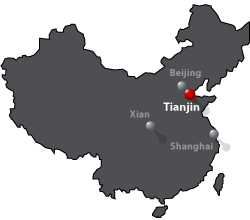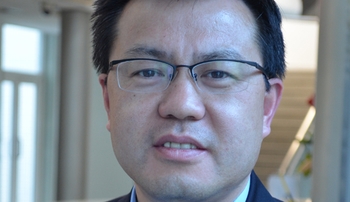SHANGHAI — A joint lymphoma collaboration between UNMC and Tianjin Medical University Cancer Hospital has improved care for several patients here.
 Below, Kai Fu, M.D., associate professor of pathology and microbiology and associaite director of the UNMC Asian Pacific Rim Development Program, tells us more about the Sino-U.S. Center for Diagnosis and Therapy for Hematological Malignancies.
Below, Kai Fu, M.D., associate professor of pathology and microbiology and associaite director of the UNMC Asian Pacific Rim Development Program, tells us more about the Sino-U.S. Center for Diagnosis and Therapy for Hematological Malignancies.
The collaboration has already benefited several patients in China.
What is the center?
This is the first lymphoma center established between the U.S. and China. It was established in October 2009 between UNMC and Tianjin Medical University Cancer Hospital in Tianjin.
What is the center’s purpose?
 |
Kai Fu, M.D. |
What is the incidence of lymphoma in China compared to the United States?
Lymphoma is the 10th most common cancer in China, whereas it’s the fifth most common cancer in the U.S. But since China’s population is much larger, there are more cases than in the U.S.
What’s the next step with the center?
We want to establish an independent, joint lab between UNMC and Tianjin Medical University Cancer Hospital. … UNMC will be able to train more clinicians in China to do diagnosis, treatment and translational research.
How does the partnership benefit UNMC?
This will increase our business load and consultation cases and increase our research ability so we can train more graduate students and post-doctoral researchers. We will apply for joint funding for research projects through the National Institutes of Health and Chinese scientific foundations and ultimately we’ll expand to other Chinese medical centers.